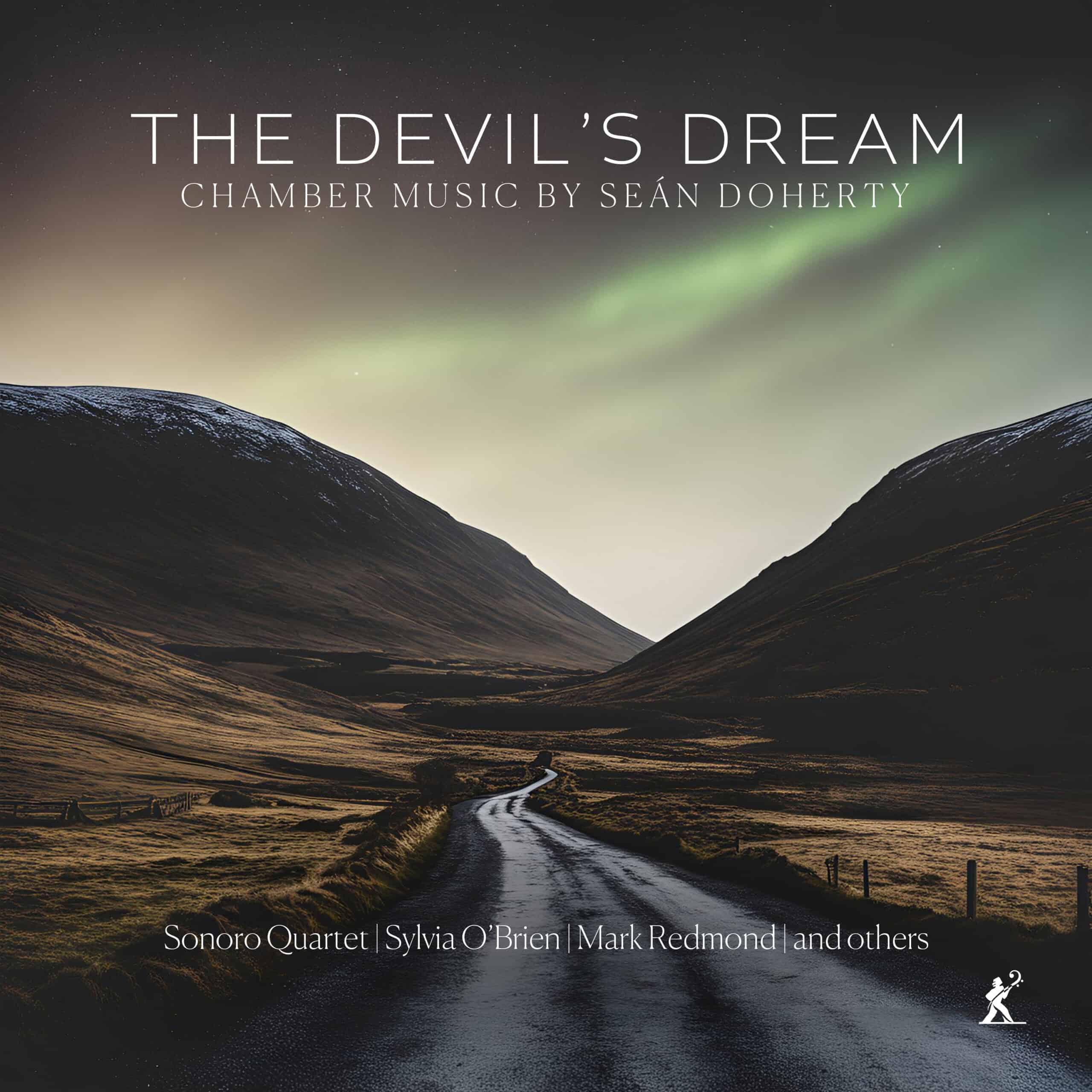The Chronicle Review Corner
This is an imaginative and, in places, strident programme of music, but it is far more palatable as a whole than some of the parts suggest. In his sleeve notes, Doherty says that he is “at heart a fiddle player”, adding: “In any idle moment, a jig is going round in my head or my fingers are tapping out a hornpipe on my palm.” Doherty himself comes from Derry, aka Stroke City because its name represents the struggle in Ireland, Derry or Londonderry. So while there is a wodge of more traditional Irish music on the album the Troubles over the years also feature, most strikingly when violins do a surprisingly good impression of sirens; rather like the album that should not be a pleasant listen, but it is. It’s a part traditional, part classical and part punky, aggressive take on folk.
“The Devil’s Dream” opens and it’s a musical journey of the last walk of Doherty’s teacher, fiddle player James Byrne, who collapsed and died on a walk home after a music session. It opens ethereally, perhaps the light-headed happy feel of a man walking home after a good might of playing, head full of half-remembered songs before the music gets more frantic and becomes a danse macabre.
“Lament for the Poets” is in three movements and is a response to the Easter Rising. “The Tidings” is strident, a sky-woman (soprano Sylvia O’Brien) delivering striking vocals (“Censored lies that mimic truth / Censored truth as pale as fear”) that at first listen are difficult but sound better in context after a couple of plays. The soprano is offset by a spoken voice section (two posh English blokes speaking partly in unison and delivering lines such as “There is a feminine temperament in direct contrast to ours, which makes her do these things.”) This all comes before the violin has a proper wig out.
It then calms down to more traditional in sound, exceptions aside, like the police alert on violin in “No Go”, although this is followed by the uilleann pipes, the closing few tracks being more gentle and traditional.
The sleeve notes add an extra dimension to the music, which seems performance art as much as just a collection of musical tracks.
Fans of classical and folk should check it out, and it rewards the little bit of effort it takes by being compulsive listening.
@divineartrecordingsgroup
A First Inversion Company
Registered Office:
176-178 Pontefract Road, Cudworth, Barnsley S72 8BE
+44 1226 596703
Fort Worth, TX 76110
+1.682.233.4978












